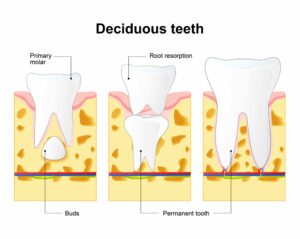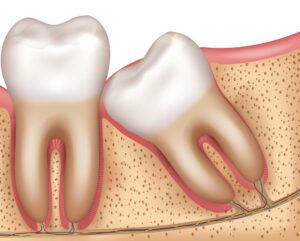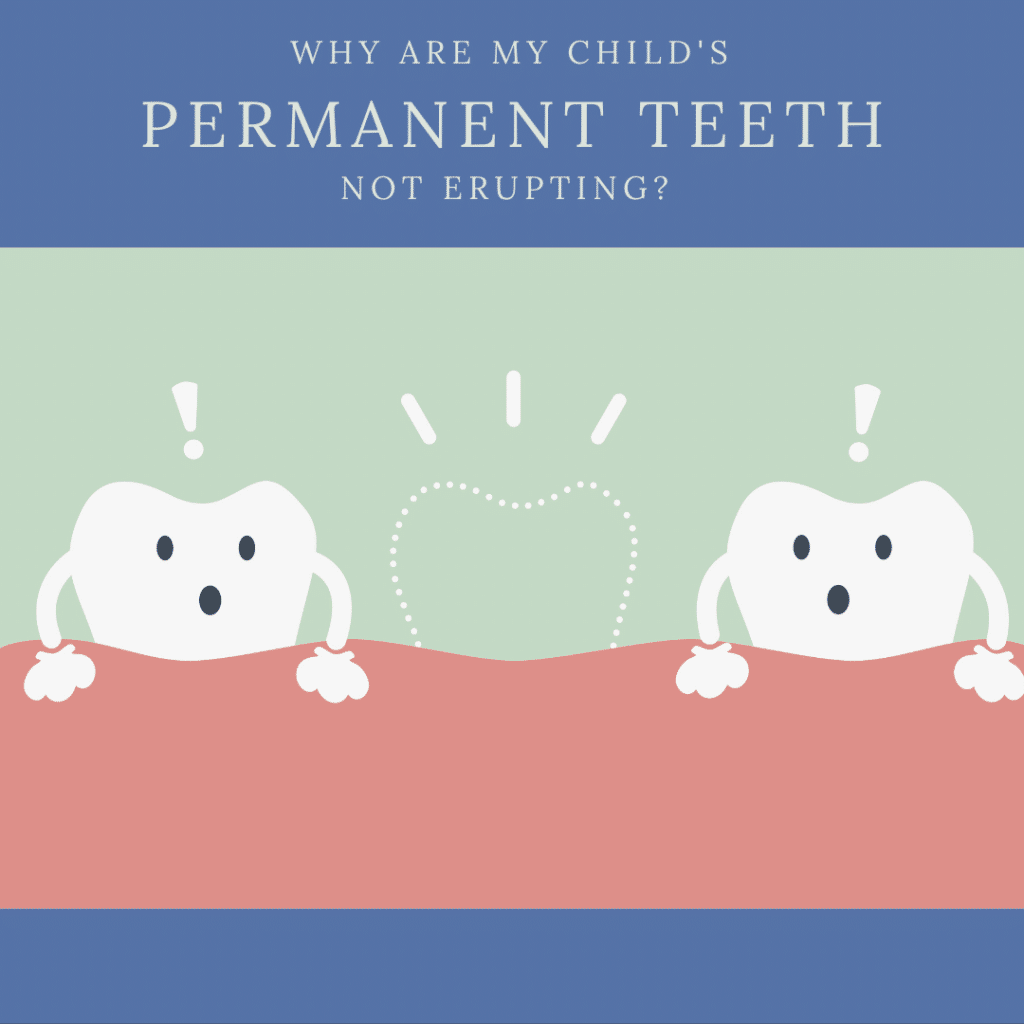When your child starts losing their baby teeth, this can be an exciting time. After a baby tooth is lost, the next step is for the permanent teeth to erupt. However, sometimes this doesn’t happen and many parents become worried about their child’s oral health. As a general rule, your child’s permanent tooth should start erupting no later 6 months after the baby tooth has been lost. There are a few different reasons why your child’s permanent teeth may not be erupting, including:
A Lack of Space

This is the most common reason why your child’s permanent teeth are not erupting. When there is not enough space for the permanent tooth, it will simply not erupt. This can happen if your child’s baby teeth do not have space between them. Since permanent teeth are wider than baby teeth, the spaces between baby teeth allow for the eruption of a permanent tooth. Without these spaces, there is not enough room for the permanent tooth.
Growing Incorrectly
Another reason permanent teeth may not erupt is because they are growing in the wrong direction. This is most often seen in the lower second bicuspids and upper canines.

Impaction
Impaction is a term used to describe a tooth that has completely developed underneath the gums. This can occur when there is not enough space for eruption, if the jaws are too narrow, or if the primary teeth are lost prematurely.
Supernumerary Teeth
Hyperdontia is a condition in which a child develops more than the normal 32 permanent teeth. These extra teeth are known as supernumerary teeth. When they erupt, they can block the permanent teeth from erupting. Additionally, supernumerary teeth can also cause overcrowding, impacted teeth, and the displacement of teeth.
Certain Medical Conditions
A final reason why your child’s permanent teeth may not be erupting is possibly due to certain medical conditions that affect the growth and development of bones. These conditions include: rickets, hypothyroidism, fibrous dysplasia, and Down’s syndrome.
Treatment Options
If your child’s permanent teeth are not erupting, a visit to their pediatric dentist is recommended. Their pediatric dentist will evaluate their mouth and take dental x-rays to examine the underlying bone structure. Depending on their findings, they may recommend different treatments such as:
- Orthodontic treatment to make space for the eruption of permanent teeth. Depending on the severity of the problem, this can be accomplished through different orthodontic appliances or surgical intervention. Orthodontic treatment can also be used to widen the jaw and help guide a tooth that is erupting in the right direction.
- Certain teeth may need to be extracted to make more room in the mouth. This is likely in cases where your child is diagnosed with hyperdontia and has too many teeth.
- Closely monitor the tooth to see if the problem resolves on its own. This approach is generally used in cases where the tooth is not causing any significant problems and appears though it might erupt on its own eventually. In some cases, it may take up to a year for a permanent tooth to erupt after a baby tooth is lost.

Dr. Leyster is a board-certified pediatric dental specialist. He is recognized as a Diplomate of the American Board of Pediatric Dentistry. He has served as faculty as an Assistant Professor at the University of Southern California School of Dentistry in the Division of Public Health and Pediatric Dentistry. Dr. Leyster belongs to the American Academy of Pediatric Dentistry, American Board of Pediatric Dentistry, California Society of Pediatric Dentistry, California Dental Association, Pacific Northwest Dental Association, and the American Dental Association.






